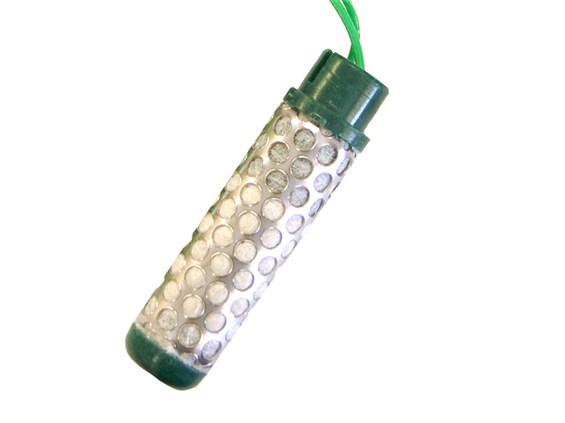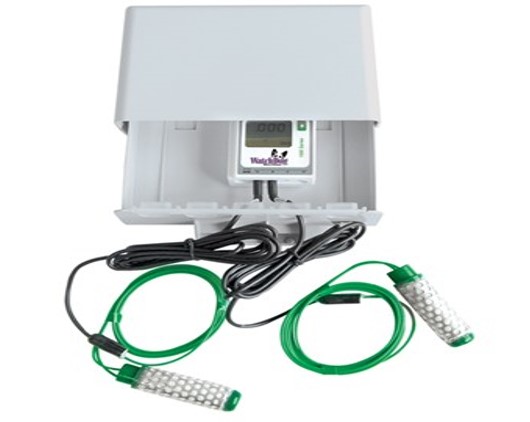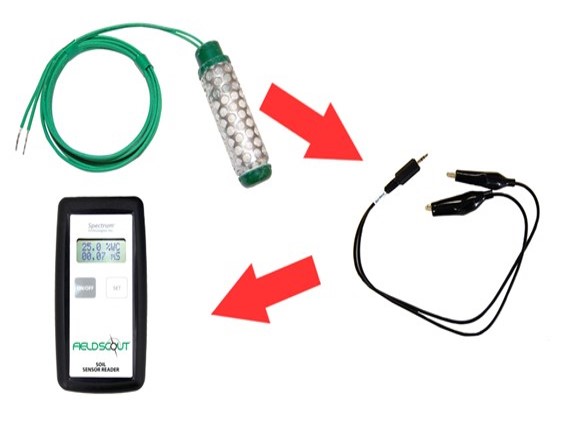gypsum block
 A popular approach to measuring soil water potential, or soil tension, is the gypsum block. The Watermark Gypsum Block measures the matric potential of the soil between 0 and -200 kPa (centibars) and is an ideal approach to determine soil water status for optimal crop growth. The gypsum block can be buried to any depth in the soil profile and is supported by our range of data loggers or handheld meters.
A popular approach to measuring soil water potential, or soil tension, is the gypsum block. The Watermark Gypsum Block measures the matric potential of the soil between 0 and -200 kPa (centibars) and is an ideal approach to determine soil water status for optimal crop growth. The gypsum block can be buried to any depth in the soil profile and is supported by our range of data loggers or handheld meters.
related products
what is soil water potential?

The Watermark Gypsum Block can continuously monitor soil water potential with the Watchdog data logger.
Soil water potential, or soil tension, is the amount of energy available in the soil for water movement. That is, soil water potential is a measure of how much energy is required by the plant to absorbed or extract water from the soil matrix. A soil water potential value of 0 (zero) means the soil is saturated, or flooded, and there is free movement of water. As soil water potential values become more negative, then the greater amount of work is required by plants to extract water from the soil. A value of -1,500 kPa (or 1,500 centibars) is called the permanent wilting point and is the point where most plants can no longer extract moisture from the soil.
The Watermark Gypsum Blocks measures soil water potential between 0 and -200 kPa (or 0 and 200 centibars). This range of soil water potential is the optimal range of soil moisture for the majority of plants, and especially all of the most economically important crop plants. Typically, soil water potential is ideal at a value of -33 kPa (33 centibars) - a point known as field capacity. At this point, there is not too much water as to cause water logging and anaerobic soils. There is also ample supply of water for optimal plant growth. Depending on your crop, soil water potential should not be lower than -100 kPa. The exact lower point value, however, does depend on the type of your crop (e.g. lettuce versus wheat), time of the growing year, and possibly seasonal factors.
Soil water potential should not be confused with soil water content. Soil water potential is an absolute measurement, such as temperature, as it is a measure of a state of energy. Soil water content, on the other hand, is a dependent measurement. Soil water content depends on the physical properties of the soil. For example, a soil water content value of 30% in a sandy soil means it is saturated, whereas 30% in a heavy clay soil may indicate that it is dry and there is little plant available water. A soil water potential value of -33 kPa means the soil is at field capacity whether it is measured in a sand or a heavy clay.
Soil water potential is favoured by some growers and scientific researchers because it is an absolute measurement. If many sensors are installed across a field or research site where soil is highly variable, then soil water potential measurements are far easier to interpret than soil water content measurements.
Click here for more information on soil water potential.
specifications
- Measurement range: 0 to -200 kPa (0 to 200 centibars)
manual and installation guide

